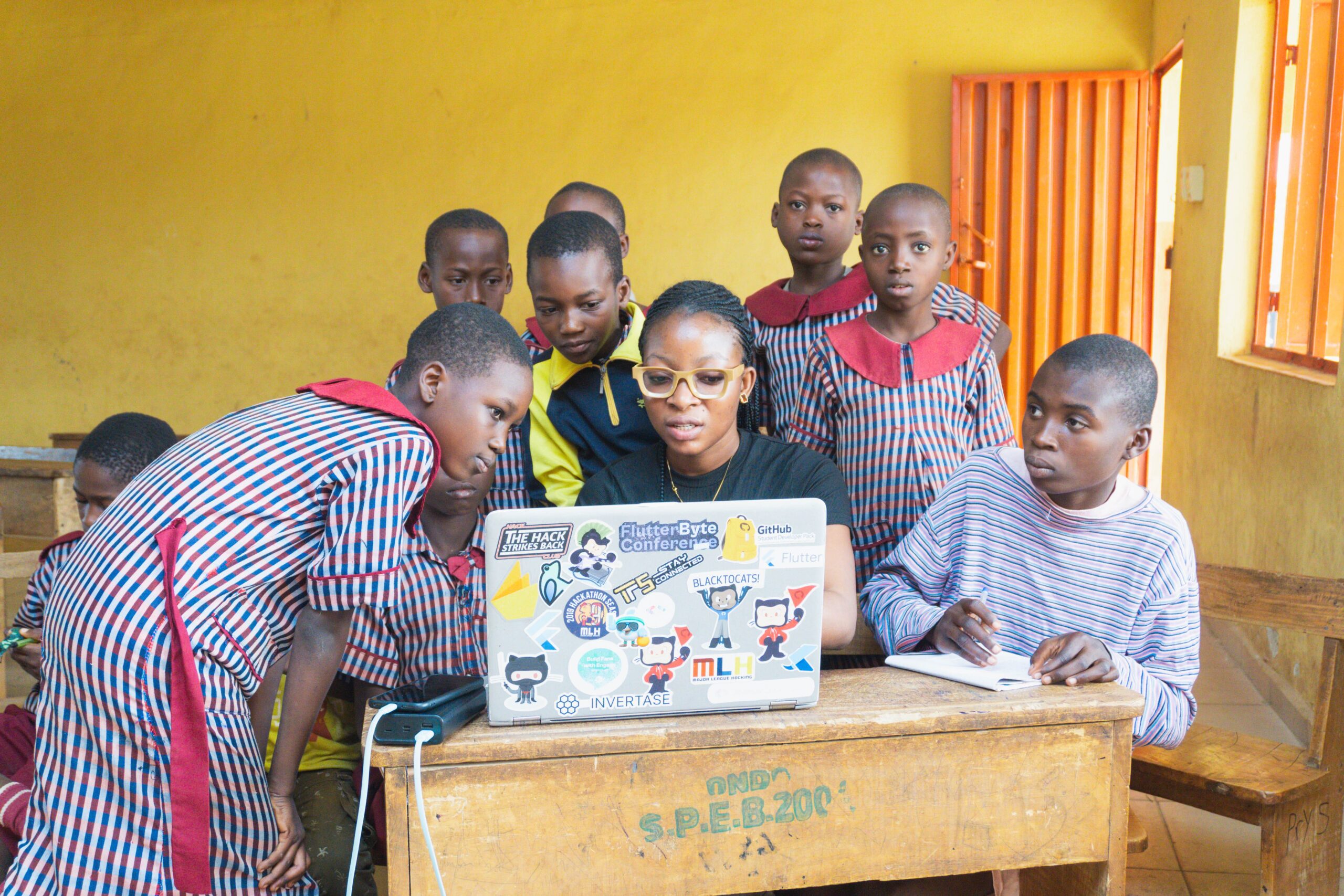By Isaac Atunlute
In many rural and hard-to-reach communities in Nigeria, digital barriers remain one of the greatest roadblocks to quality education.
While urban schools increasingly embrace smart boards, tablets, and e-learning apps, their rural counterparts often lack even the basic infrastructure—reliable electricity, internet connectivity, and trained ICT personnel.
This deepens an already unequal education system, dividing it not just by geography but by access to opportunity.
As of 2022, roughly 61% of Nigerians living in rural areas had no internet access, compared with 40% in urban areas. Nationwide, only about 36% of the population uses the internet and just 47% of teachers possess basic ICT skills
In a bid to boost digital literacy in public schools, IHS Nigeria Limited, in partnership with the United Nations Children’s Fund, has begun a school-connectivity programme targeting teachers and students across the state.
The programme aims to train educators with the skills and tools they need to integrate digital learning into the classroom.
The programme is training 100 public-school teachers and distributing internet routers to 50 schools, focusing especially on areas where access has historically lagged.
Each participating school nominates two representatives, typically a principal and an ICT teacher, to undergo a comprehensive skills training. These teachers are not only refreshing their ICT knowledge but are also trained as digital literacy ambassadors tasked with imparting their knowledge to colleagues and students.
By pairing training with infrastructure, the training ensures that digital skills are not only taught but can also be practised and sustained. Routers are installed to provide reliable internet, allowing teachers and students to dabble in the world of online learning platforms and engage with tools.
The initiative employs a multi-layered approach: promoting immediate digital inclusion and building long-term capacity through teacher empowerment.
Teachers are trained not just to navigate digital tools but also to embed them into daily instruction, expanding the learning possibilities for students.
Kwara’s grassroots intervention is not an isolated case.
In Borno, a digital inclusion initiative has trained over 6,000 students in IDP camps on foundational literacy, numeracy, and digital skills.
More recently, in Lagos, a private-public initiative equipped several high schools with smart classrooms, featuring interactive blackboards, tablets, and curriculum-based digital content to support interactive teaching.
Elsewhere, in Enugu, a nonprofit has trained 200 adolescent schoolgirls in basic coding and internet safety, addressing gender gaps in tech education.
These initiatives reflect the importance of digital literacy to quality education.
In Kwara State, where some of the public schools have struggled to integrate digital learning due to infrastructural and human capacity gaps, the new school connectivity project offers a lifeline.
In a country where public education suffers from systemic underinvestment, programmes like these offer a glimpse of what’s possible when innovation, training, and targeted infrastructure converge.
In many rural areas of Nigeria, digital barriers significantly hinder access to quality education, creating a divide in the education system not only based on geography but also in terms of opportunity access. While urban schools adopt advanced digital learning tools, rural schools often lack basic infrastructure like electricity and internet. Only 36% of the overall population uses the internet, with a mere 47% of teachers possessing basic ICT skills.
To address these disparities, a new initiative in Kwara State is equipping public school educators with digital tools and training. Conducted by IHS Nigeria Limited in partnership with UNICEF, this program aims to integrate digital learning in classrooms by training 100 public school teachers and providing internet routers to 50 schools, especially targeting areas with historically poor access. Schools nominate a principal and an ICT teacher for comprehensive digital literacy training who then act as ambassadors to spread this knowledge among peers and students.
Similar initiatives are taking place across Nigeria. In Borno, over 6,000 students in IDP camps received training in foundational skills, while Lagos introduced smart classrooms through a private-public partnership. Enugu has also seen efforts to narrow the gender gap in tech education by training 200 schoolgirls in coding and internet safety. These efforts highlight the transformative potential of digital literacy in improving educational quality, particularly in underfunded public education settings.






